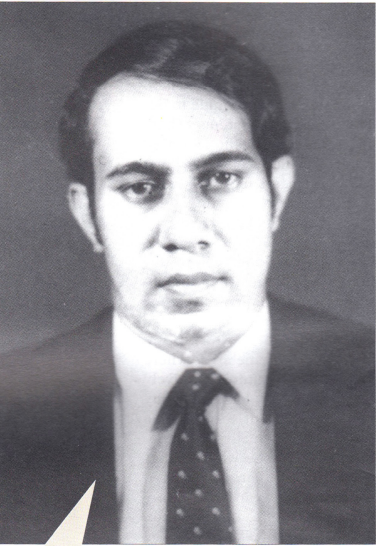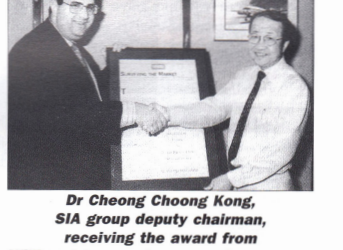Nihal Fonseka, deputy CEO, Hongkong Bank, Sri Lanka, comments on the fierce competition and the technology war that’s sweeping the banking environment in Sri Lanka, especially, among the commercial banks.
As a retail commercial bank, what were your main sources of income in 1996?
I take it that you are using the word ‘retail’ to differentiate commercial banking from investment and merchant banking. In 1996, Hongkong Bank in Sri Lanka had a good mix of income from net interest margin, fees and commissions and treasury activities. During the last decade we have positioned our business here to increase the relative contributions from the latter two areas since it was obvious that interest margin would come under a lot of pressure because of competition. We saw particularly strong performances from trade services and credit card merchant acquiring activities in the Maldives. Our securities, custodian and trustee services also chipped in useful amounts to the bottom line.
With competition in the trade getting fiercer by the day, in terms of shrinking margins and the blurring of long accepted boundaries within the generic term of banking, what avenues do you think commercial banks will pursue in the future to keep their head above water?
As I said earlier, we have already taken shrinking interest margins in our stride and invested in products and services which provide good non-funds income streams i.e., fees and commissions. Of course, income from these business lines are also coming under pressure but being pioneers and market leaders have helped us get critical mass and economies of scale in merchant acquiring and custodian. There is potential for significant increases in volumes of these businesses if lasting peace is established in the North and East.
There are signs that disintermediation (ie., where lenders, borrowers and international trading partners bypass or reduce the role of banks) will increase especially in the corporate banking sector. However, there will be new opportunities in the long term for global banks like us when Sri Lankan Corporates expand outside Sri Lanka and when exchange controls are eventually dismantled enabling Sri Lankans to undertake capital transactions abroad.
Talking about productivity, what is your bank’s cost to income ratio?
I cannot disclose the exact figure for Sri Lanka but the cost/income ratio for Sri Lanka in 1996 was in line with the Hongkong Bank (Asia Pacific Operations of HSBC Holdings) average of 39.5%.
Is this on par with Sampath Bank?
The comparable figure for Sampath Bank which I have calculated from its 1996 annual report is 53%.
Your global power and network, I am told, helped your bank to acquire the most advanced and stable IT platform among the banks in the late 80s. However, is it true that your bank has now been overtaken by two local banks?
I don’t think ‘overtaken’ is the correct description. It is evolving so fast that depending on the time of acquisition of a system, one can get IT superiority in a specific area, although this advantage tends to be short-lived. We have many firsts in Sri Lanka: the first 24-hour ATMs in mid-1980s, the first comprehensive
electronic banking system (Hexagon) in the early 1990s, and more recently the first global access ATM Card, the first machine readable international credit card and the introduction of EDC terminals in shops for credit card authorization. I will agree with you that there are a few specific IT features offered by some local banks which, for the time being, may be seen to be better than what we offer, by some customers. Let me assure you that this is not in any way a reflection on the importance that the HSBC Group attaches to IT. The Group employs over 6000 IT professionals worldwide and in 1997 plans to spend more than US$ 400 million on hardware and software purchases and USS 1250 million on developing and running computer systems.
On the other hand, my view is that unseen and untrumpeted IT products may benefit a bank and its customers by way of timely and accurate service, than IT products like Home Banking and Telephone Banking. What is your view?
Front-end IT products which the customer directly sees need to be well supported by back office systems. In Hongkong Bank, Sri Lanka, we have and continue to invest heavily in upgrading our back office and management information systems. You are quite right that good back office systems play a significant role in providing a superior service to customers not to mention the competitive edge it gives a bank through increased productivity and accurate and up-to-date information.
Telephone Banking is talked about a lot these days. The first generation of telephone banking, Automated Telephone Banking (ATB) where customers deal directly with a computer is fading away. The new generation’s, personal telephone banking (PTB). where there is a hu man being to deal with, is becoming popular but the transition requires a huge reorganization of the back offices of banks to ensure efficiency, security and confidentiality. The HSBC Group has well developed and proven PTB capabilities which we will bring to Sri Lanka when we are sure that we can deliver its full potential to our customers.

Also, technology per se will not get a bank super results it seeks. It could lead to chaos. What is your view?
I agree that unplanned introduction of technology can lead to a lot of problems. In the case of Hongkong Bank, all our main banking systems have been developed within the group to a common standard and then amended to cater to local requirements. The upside of this approach for us in Sri Lanka is that we get well tested and stable systems and there is more direct accountability within the Bank for its performances than if a system was brought off the shelf or developed by a third party. The downside is that delivery dates can be longer since internal IT development centers have competing claims on their time and resources which they have to prioritize.
I believe that introducing new technology just for the sake of it should be resisted. Both hardware and software are still relatively expensive in Sri Lanka and banks should carefully consider costs and benefits before embarking on a spending spree because if they get it wrong the customers and/or the shareholders will have to end up paying for it. In Hongkong Bank, Sri Lanka, we have on cost/benefit grounds consciously deferred the introduction of some new systems which were available within our group. On the other hand, later this year we will be the pilot site for the whole HSBC Group for the implementation of a major upgrade to our Trade Services systems. There are some significant IT based products which Hongkong Bank will have access to in Sri Lanka shortly and we will introduce them if they make commercial sense.
Then how about technology being pooled together to provide a high quality of service and advanced technology to our people?
There are some areas where it can be done quite effectively and profitably. I don’t think any bank would want to give up a sustainable competitive technological advantage which it has developed but there are areas in which banks can cooperate. Personally, I am disappointed that a very good idea of the Central Bank to promote a shared ATM network has not made much progress because some local banks which had incurred development costs on their ATM networks felt that their competition would get an ‘I am disappointed that a very good idea of the Central Bank to promote a shared ATM network has not made much progress…’ unfair advantage. I think a formula can be evolved whereby these banks are properly compensated.
Talking about human resources, why is it that the best talent in the labor market prefer the foreign banks to the local banks?
I don’t want to generalize because I know that there are some very good people in local banks too. However, I agree that foreign banks, at least some of them, appear to be preferred over local banks by many job seekers. An often understated reason is the transferability issue. Foreign banks have very few or no branches and one can be sure that there is easy access to the workplace. If you look at the clerical level, because foreign banks employ fewer people than most local banks, there tends to be greater rapport and team spirit among the staff and they have a greater chance of mobility, even if it is only lateral, within the bank. When it comes to executive staff, compensation and benefits are key issues. Prospects of international training and temporary overseas postings also help some foreign banks to attract good people.
As a final question, would you consider the recent reduction on the reserve requirement as inflationary or as an injection to boost the ailing corporate sector?
There is no doubt that it was meant to be the latter. Initially, those who benefited most were the multi-banked strong corporates with access to facilities linked to money market rates. If low interest rates are sustained, smaller businesses will eventually benefit once banks are able to reprice their term liabilities. Sri Lankan corporates, especially those who are involved in internal trading and tourism, need a break and lower interest rates will definitely help.
However, it is too early to say whether the liquidity experienced now will eventually fuel inflation. So far, there are no alarm signals and the impact on the overall economy has been positive for professionals and middle-management individuals. Consumer banking is an area which will become more important as disposable incomes increase. Admittedly, there are some inherent problems which will need to be overcome and banks will have to improve their productivity to handle this business profitably.




